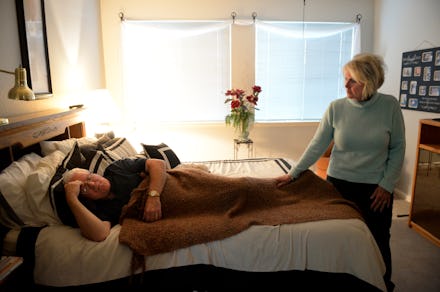The Facts About Depression We Need to Start Talking About

Depression is a mental illness that is difficult to talk about for most Americans. A common but severe mood disorder, depression is not a simple fix. While friends might tell you to "snap out of it" or to "just cheer up," depression can require counseling and medication.
Depression, a commonly misunderstood condition, can occur when someone feels hopeless, discouraged, sad, unmotivated or just completely uninterested in life. When these feelings last for more than two weeks and start to affect your daily life, you could be suffering from a major bout of depression.
Read more: Marijuana and Depression: Can Pot Cure Depression? Or Make It Worse?
"I don't want to kill myself but I've lost hope," Colorado resident Tom Pelletier told the Denver Post in 2014. "I've lost all hope which is hard. It's like a hell on earth because nothing is bringing me any joy."
There are three primary types of depressive disorders: major depression, persistent depressive disorder and bipolar disorder, according to the Anxiety and Depression Association of America. "Many people who develop depression have a history of an anxiety disorder earlier in life," the ADAA website states. "There is no evidence one disorder causes the other, but there is clear evidence that many people suffer from both disorders."
According to the World Health Organization, nearly 350 million people across a spectrum of ages have depression, and it's the leading cause of disability across the global, the main factor that leads to global disease. Women are affected by the mental health disorder at greater rates than men, according to HealthGrades.com.
Effective treatments are available for people suffering from depression, but only about one-third of depressed individuals are able to receive treatment, according to AllAboutDepression.com. Anywhere from 80% to 90% of depressed individuals can improve their situations in a few weeks if they seek help.